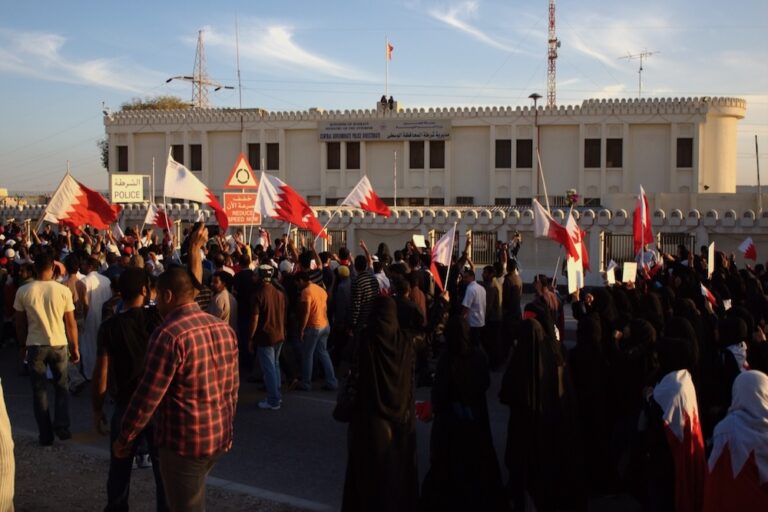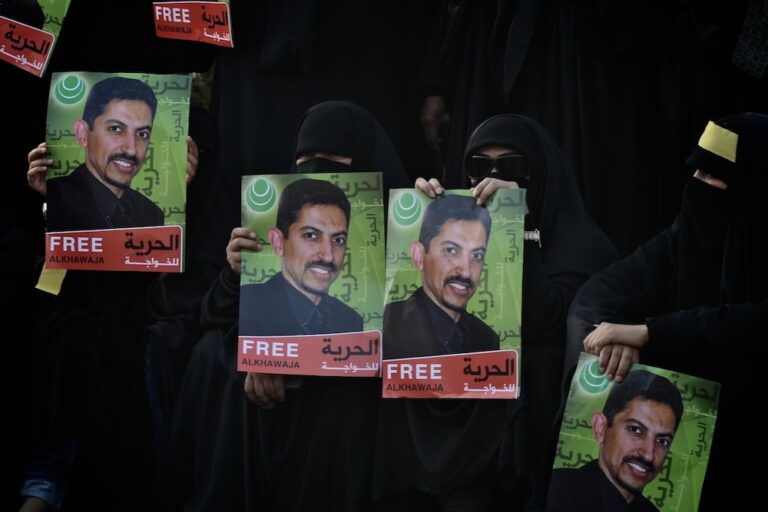The report points to the media's bias towards government candidates and the effect of the detention crackdown on the media's performance.
(ANHRI/IFEX) – Cairo, January 8th, 2011 – The Arabic Network for Human Rights Information (ANHRI) announced today the release of a report by the Arab Working Group for Media Monitoring (AWG-MM) on the performance of the official and independent media during the recent elections in Bahrain held October 3 – 31, 2010. The report presents a quantitative and qualitative analysis of the performance of the audio visual and print media.
The results of a monitoring project that was conducted to evaluate the performance of the media during Bahrain’s latest parliamentary elections, point to the limited use of radio and television channels in disseminating election awareness. In contrast, these channels were excessively used to distribute sensationalist information and to publicize government officials and figures.
In regard to the daily newspapers – which are privately owned – the monitoring project shows that neutrality or bias varied toward certain candidates and political societies; however, all of the five main newspapers published in Arabic published materials in favor of the government and senior state officials in a manner that reveals the – indirect – official influence on those newspapers.
The monitoring revealed that all the traditional media avoided addressing certain issues related to the elections which were considered sensitive by the authorities, and almost declined to convey the statements, opinions, and protests of the figures and parties that were boycotting the elections. This reflects the influence of the authorities over these newspapers, and the self-censorship they resort to. It also puts into question the neutrality and professionalism of some newspapers whose role is to share information and opinions with their readers.
The report notes that the elections took place under a state of political and security crisis which greatly overshadowed the role of the media and its neutrality in the elections. The election campaign period was preceded by a number of arrests that, in particular, targeted the leaders and members of political groups who were calling for a boycott of the elections. The government also targeted some opposition political groups; both participating and boycotting ones, by suspending their publications and blocking their electronic websites.


